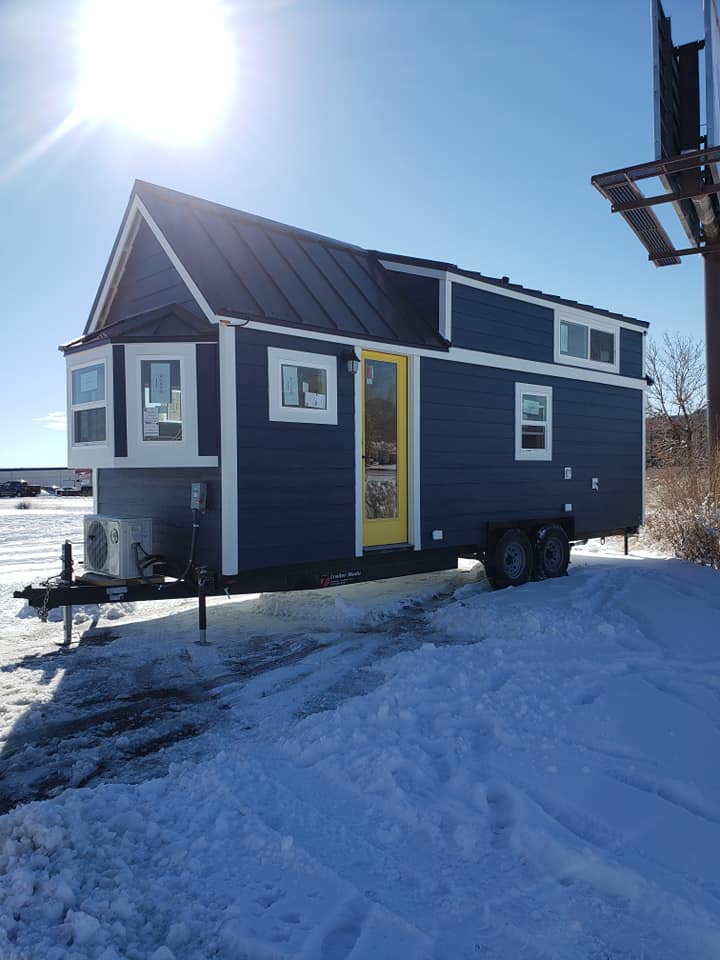Delta County, Colorado approved and adopted its land-use code by the Delta County Board Of County Commissioners on January 1st, 2021. The code became effective on April 1st, 2021. Recreational vehicles and tiny houses are included in the updated codes.
Purpose; Interpretation; Authority; Jurisdiction
A. Purpose. The purposes of this Code are to:
- Promote the health, safety, and general welfare of the residents of Delta County;
- Protect the character of existing rural, urban communities and neighborhoods in Delta County;
- Ensure that developers and subdividers provide adequate, safe, and efficient public utilities and public improvements, and provide for other community facilities and land for public places and uses; and
- Establish adequate and accurate records of land subdivision.
- Interpretation
- Generally.
A. Delta County has a strong commitment to private property rights, as set out in the County’s Master Plan. The freedom to use private property is not just in the owner’s interest, but also in the public interest. However; the impacts of the use of private property on surrounding properties, public infrastructure, and/or natural resources is a matter of County concern, and therefore a proper subject of County regulation.
B. The right to develop and improve private property does not include the right to physically damage or adversely impact neighboring landowners, or to utilize more than the property owner’s fair share of public facilities and resources, even if that means that the property owner cannot utilize property for its perceived “highest and best use.”
C. Zoning provides an efficient and fair way to provide for the orderly use and development of land in the County. Land uses that generate noise, dust, traffic or other potential off-site impacts are directed by this Code to certain zoning districts where there are adequate services (including roads, water, and sewer), and where off-site impacts may be more effectively absorbed and/or mitigated.
D. This Code is designed to increase understanding among landowners, residents, business owners, and decision-makers as to the boundaries between private property rights and public interests in various areas of the County. This Code establishes a regulatory format for what it means to be a “good neighbor” in Delta County in terms of the use and development of land.
E. This Code was developed in the context of, and subject to, constitutionally protected rights, which are articulated in the Constitutions of the United States and the State of Colorado and interpreted by federal and state courts with jurisdiction in and over Delta County. Further, this Code was developed in the context of constitutional and statutory provisions that both establish and limit the authority of the County government in Colorado.
Highlights For Tiny Houses
B. Temporary Use of Recreational Vehicle, or other similar structure as Dwelling Unit
1. A recreational vehicle may be temporarily occupied as a dwelling unit during the period in which a dwelling unit is actively being constructed or installed on a subject property, provided that the occupant of the recreational vehicle is the owner of the property upon which the construction is occurring, or the contractor who is constructing the dwelling unit. Hauling of water for temporary farm worker housing is allowed. Said use of the recreational vehicle shall terminate the earlier of:
A. 90 days after it is commenced; or
B. When the dwelling unit is substantially complete and habitable.
2. A recreational vehicle, or other similar structures not intended for permanent living, may be considered single-family detached residences when connected to permanent,eliable infrastructure, including power, water, and either sewer or a permitted individual sewage disposal system.
Single-Family Detached Residence
Single-Family detached residence means a detached dwelling unit that occupies an individual building and is separated from other buildings and dwelling units by outside walls. Tiny homes, recreational vehicles, yurts, or other structures that are not generally intended for permanent living may be considered single-family detached residences when connected to permanent, reliable, infrastructure, including, water, power, sewer or a permitted, individual sewage disposal system.
Thank you Joe Callantine, the CEO of Life Style Tiny Communities for sharing this information.

Photos Courtesy: Tiny Building Experts
Colorado Springs, Colorado

